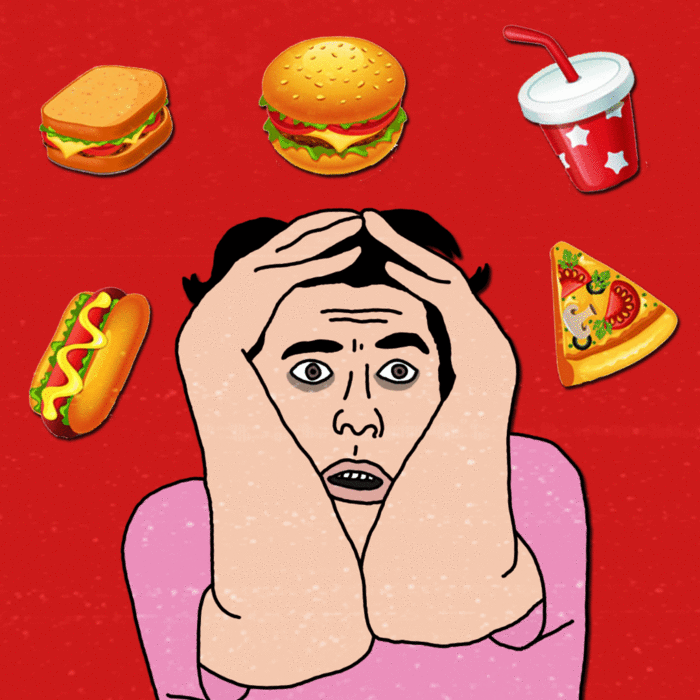Because of these nutritional anxieties and fears, people with ARFID stick to the foods they know, and recovery is usually only possible through intensive therapy.
For music journalist Ben Boddez, ARFID has cut his meal options down to a tiny number.
I first met Boddez through a mutual friend while we were both students at the University of British Columbia. As we settled into a conversation, he recommended we stop by this nearby fast-food place, because he could “only eat chicken strips.”
“Sure…Wait, what?” I asked.
That was when I first learned of Boddez’s condition, and how, after developing ARFID at the age of 5, he hasn’t added anything new to his palette since then. He is now 23.
Boddez’s history with ARFID resembles a supervillain’s origin story. While genetics may have played a role in its development, Boddez describes two central events that led to the disorder’s manifestation.
Back when he was a fetus, his umbilical cord got tangled around his neck, which he believes led to his phobia of choking. And when he was a toddler, doctors discovered he was deathly allergic to peanuts. Unfortunately, they learned this not through tests, but after he suffered an enormous allergic reaction from eating them.
“I can still remember pretty vividly looking up in the ambulance and going to the hospital,” Boddez said. “Then I woke up and there were cameras in my face, because they put me on the morning news. They had cured me, apparently. I still don’t really know how that worked.”
Somehow, through the power of science, Boddez had been cured of his peanut allergy. Immediately after waking, in an ethically questionable move by reporters, the young boy was then forced to eat a bunch of peanut butter cups on live television, to prove he really was cured.
“My 5-year-old brain was like, ‘Why are you feeding me this thing that nearly killed me yesterday?’ ” Boddez recalled. “So I thought, logically, I’m not going to eat anything unfamiliar anymore. Because it might kill me.”
His history with food is a familiar one. While ARFID doesn’t have a single root cause, a great deal of patient cases stem from trauma, mixed with a genetic or biological predisposition to the condition.
Boddez shrugged sheepishly when I asked if he ever got tired of eating the same foods day after day.
“No,” he answered.
Just as how a life-long vegetarian doesn’t miss meat, Boddez explained that he doesn’t crave other foods because he’s never tried anything different. He has nothing to crave or yearn for because he’s simply never tried anything else.

